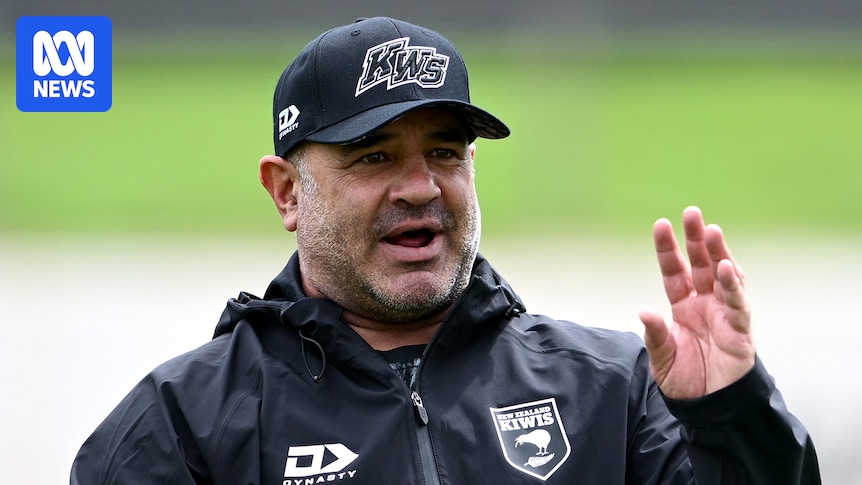
New Zealand coach Stacey Jones has joined the growing calls for increased scrutiny of pre-game warm-ups, following the distressing incident involving Eliesa Katoa. The Kiwi and Samoan players have expressed their concern and heartbreak over Katoa’s severe head injury, which occurred during a warm-up session before a match at Eden Park.
The National Rugby League (NRL) is currently conducting a review into the incident, where Katoa, a star player for Tonga, suffered three head knocks. He remains in Auckland, recovering from seizure activity and a brain bleed. The focal point of the investigation is Katoa’s initial head injury during the warm-up, which the Tongan medical staff initially deemed only required an on-field check.
Incident Details and Immediate Reactions
Footage from broadcasters captured the moment Katoa fell backward after being struck on the head by teammate Lehi Hopoate’s shoulder. Despite passing a Head Injury Assessment (HIA) for the first in-game hit, Katoa fell ill after a second head impact during the match.
Tongan officials have stated they did not review the replay of the warm-up collision until after the game. Currently, clubs employ spotters during training to monitor head knocks, and all contact sessions are recorded for review. An independent doctor also oversees game footage to identify head injuries. However, these measures do not extend to pre-game warm-ups.
Calls for Change and Expert Opinions
Stacey Jones emphasized the need for scrutiny, stating, “There should be scrutiny around it. I don’t know what went on … but there has got to be some real good care around the players. We have it at training.”
Jones’s comments echo those of fellow Kiwi great Shaun Johnson, who expressed outrage over the incident, suggesting that “heads will roll” due to the oversight. Jazz Tevaga, Katoa’s former teammate, shared his dismay, calling the situation “very heartbreaking” and stating, “It shouldn’t have happened, but it did happen. All we can do is pray and hope he comes through the other side.”
Historical Context and Safety Measures
Historically, rugby league has faced scrutiny over player safety, particularly concerning head injuries. The introduction of independent doctors and video reviews in games marked significant progress. However, Katoa’s case highlights a gap in pre-game protocols.
“Pretty much the whole rugby league community, or everyone that knows him, is behind him and thinking of him through some pretty tough times,” said Kiwi forward Isaiah Papali’i.
Papali’i, who shares a history with Katoa from their time at the Warriors, expressed his concern, noting, “I’ve never really experienced or seen anything like that before. I just want him to make a full recovery or get back to full health.”
Implications and Future Considerations
The incident with Katoa underscores the urgent need for comprehensive safety measures that include pre-game activities. As the NRL review continues, stakeholders across the sport are likely to push for reforms that ensure player safety from warm-up through to the final whistle.
Looking forward, the rugby league community will be watching closely to see how this incident influences policy changes. The hope is that increased scrutiny and enhanced protocols will prevent similar incidents, safeguarding players’ health and well-being.
As Katoa continues his recovery, the support from his peers and the broader rugby league community remains steadfast, with many hoping for his swift return to full health.







